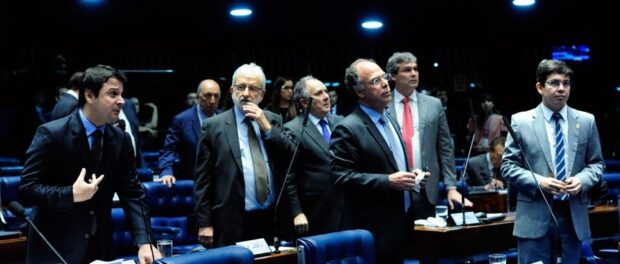
This is the fifth article in an ongoing series on the Brazilian electoral political scene in 2018.
As we saw in the previous article, party dynamics often confuse voters. This confusion extends to the election process as frequent changes to electoral rules make the process unclear to most voters. Proof of this is that Brazil has never had more than two elections that follow the same rules. Here we seek to clarify a few points about the rules for 2018.
Electoral Rules
Since the 2016 electoral reforms and the 2017 political reforms that are now in effect (yet another part will only come into force in 2020), some rules governing this year’s campaigns and political advertising have changed.
Since 2016, the campaign period has been reduced to 45 rather than 90 days—meaning that candidacies were only officially declared on August 16, 2018 with voting scheduled for October 7. With regard to financing, parties continue to receive monthly funding from the Party Fund (officially, the Special Fund for Financial Assistance to Political Parties), which consists of public funding and donations that are not directed towards any specific party. Of these funds, 5% are distributed equally among all parties, and 95% are distributed in proportion to representatives in the Chamber of Deputies. This format guarantees that all parties have funding, but it ends up benefiting major parties more. These resources are designated for parties’ institutional maintenance and can be used for campaigning. Parties have the freedom to allocate the funds, so long as they respect regulations—such as designating 20% of the funding to foundations and research institutes associated with the party and 5% to programs that promote the participation of women in politics.
A new feature is the Electoral Fund, or the Special Campaign Finance Fund, which fills the vacuum left by the 2015 prohibition of corporate campaign contributions and discourages this vacuum from being illicitly filled via backdoor “Caixa 2″ electoral slush funds. The resources from this fund are distributed only in election years, and in accordance with the following criteria: 2% are divided equally among all parties and the other 98% are distributed according to various criteria that take into account the number of votes obtained and congressional representation. The parties that are respectively securing the most funding in 2018 are the Brazilian Democratic Movement (MDB), the Workers’ Party (PT), the Brazilian Social Democratic Party (PSDB), the Progressive Party (PP), and the Brazilian Socialist Party (PSB), respectively—together accounting for over 50% of funds.
The parties will decide how resources from the Electoral Fund are distributed among their candidates—but at least 30% must be allocated to women, given that at least 30% of candidates launched by any party must be women. Parties are accustomed to allocating more money towards the campaigns of federal congressional candidates given that the greater the number of elected federal deputies, the greater portion of party and electoral funds the party will gain in future. A common criticism is that the Fund’s rules favor the maintenance of major parties, making it difficult to change the composition of Brazil’s Congress.
In addition to public funds, personal financing and collaborative financing of candidates through crowdfunding on platforms registered with the Superior Electoral Court (TSE) are permitted. Donors, including candidates themselves, can only donate up to 10% of their annual salary to political campaigns. This, however, does not limit the maximum value of a donation as Temer vetoed the clause that limited donations to the value of ten annual minimum wages. Donors can still donate their services (e.g. legal, consulting) or the right to use goods, furniture, or properties (e.g. meeting rooms, spaces for rallies), provided that the estimated value is less than R$40,000 (US$10,000). The total raised by a campaign is subject to an expenditure ceiling in an effort to control the advantage of candidates with greater purchasing power, among other advantages. The maximum value is R$70 million for the office of the president, R$2.5 million for federal deputies, and R$1 million for state deputies, and, in the case of Rio de Janeiro, R$14 million for governor and R$4.2 million for senators.
In the realm of advertising, election-related programming is restricted to election years. Paid electoral advertising on the Internet, radio, and television is prohibited. The use of robots and fake profiles to artificially increase the visibility of candidates’ publications is also prohibited. However, candidates and parties are allowed to boost paid posts on social networks and search engines. The proposal to suspend publications denounced for promoting hate speech or spreading fake news (until verifying that the author is a real person and not a fake profile) was vetoed under the justification of giving way to censorship. For televised and radio-broadcasted debates, stations are required to invite all candidates whose parties have five or more federal deputies. Previously, nine was the minimum number required, so this regulation may increase the visibility of smaller parties. In addition, the Superior Electoral Court provided television airtime before the launch of election-year campaigns to encourage the participation of women, youth, and members of the black community in politics, in addition to explaining electoral rules.
Finally, a regulation was approved in 2015 to print paper copies of votes cast through electronic voting machines as a measure to ensure vote accuracy. However, its implementation was suspended when the Brazilian Supreme Court decided such a measure might compromise voters’ right to privacy.
This is the fifth article in an ongoing series on the Brazilian electoral political scene in 2018.


